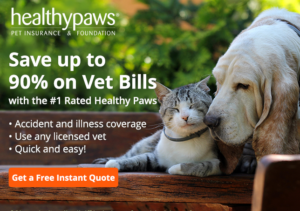
We specialize in “The 5 Vital Protections” that most everyone needs but many forget. The insurance companies don’t promote these Vital Protections since the payoffs are so high compared to the low monthly rates.
In today’s challenging world, it’s a great idea to get everything in your life insured. You can’t have too much coverage. Be Smart! Let your Policy pay those bills!
We’ve found the lowest monthly rates to give you the biggest payoffs in your time of need. Grab these now before rates rise.
Pet Insurance: It’s amazing that the cheapest things to cover we sometimes forget. For the Dogs and Cat members of our family we don’t realize how affordable their coverage is in today’s world. Every Pet will need care and with these monthly rates HERE this make it a no-brainer! Especially many plans include your Pet’s check-ups!
Identity Coverage: Everyone is amazed at the low monthly rates HERE compared to the massive costs of not being protected. Are you on a fixed income? Or is your income going up? Online identity thieves are targeting both. Get the $1,000,000 protection peace of mind now!
Renters Insurance: Most renters think that when their stuff is damaged that the landlord’s insurance will pay. It won’t! Renters can now take advantage of these low monthly rates HERE to get high payoffs. Plus you’ll be covered for your liability of your drone, your pet and you!
Home Appliance Protection: Make sure your Home Appliances and systems are covered in case they suddenly decide to go on the blink! Many repairs can run into thousands, but with monthly rates this low HERE, it’s great to have a policy to cover those costs.
Travelers Coverage: These days you really can’t go anywhere without Travelers Coverage! Most trips go swimmingly so that’s why this Coverage is actually the cheapest with the best rates we found HERE. And when you are covered, it sure helps that your policy pays those awful bills, especially when the investment was so small. Get a quote before you travel!
Be smart! Get Everything Insured! And let your policy pay those bills!

What is insurance really?
From the earliest days of human civilization there have been those who have been willing to gamble on the outcomes of other people’s efforts. A wealthy person would pay mercenaries to escort a shipment of grain produced by a farmer in exchange for a portion of the sale price. He had an interest in insuring that the goods arrived safely so that he could collect his fee, which was really just a premium collected after the risk has passed.
Modern insurance based on past experience — in the form of life insurance, to be precise — was born in 1693, when Sir Edmund Halley (yes, the comet guy) conceived, calculated, and published the first mortality tables. Halley’s tables used a small sampling of people to calculate life expectancies for the general population.
While Halley’s tables were probably not very accurate, they formed the foundation of modern insurance, which uses actuarial risk to determine premiums. Actuarial risk uses models (small samples) to make predictions about larger groups. Insurance products like life or car insurance use computers to analyze data, calculate risk, and set premiums.
Determining Risk
Premiums for all types of insurance are based on the level of risk assumed by the insurance company. The process of making that calculation is called underwriting, and the task falls upon underwriters, a specialized beed of financial analysts.
Back in the day, an underwriter would actually look over every application for insurance. Whether it was life insurance or car insurance, a live person reviewed and approved every application. Underwriters would compare applicants to actuarial tables to determine if and where a person or circumstance matched, and then they would assign a premium amount based on the probability of that applicant making a claim in the future.
Today, most life insurance and property and casualty policies have rates determined by computers without much, if any, human interaction. That’s why you’re able to apply for insurance online and get a rate quote back instantly. Sophisticated software analyzes the application and sends only unusual applications for human review. Applications that exceed certain amounts or exhibit other special criteria are then reviewed by a real person who makes a judgment about the level of risk and assigns a premium.
The system works because, for example, insurance companies have been tracking life expectancies for a few hundred years. They have been tracking information about driving habits and claims histories since before the first Ford Model T rolled off the assembly line.

Different Products
Insurance companies and their different products are regulated by each individual state. Once an insurer’s policy meets a state’s criteria, they are admitted to sell that insurance product in that state. The process of becoming an admitted provider can be complicated and expensive; that’s why not all insurance companies sell every type of insurance in every state.
Excess lines of insurance, refer to difficult or high capacity risks. For example, an amusement park would need a liability policy just like any other business, but because the risks at an amusement park are unusual, most insurance companies won’t be able to determine a rate or be willing to take on the risk. If there isn’t an admitted company willing or able to underwrite the amusement park, the park is allowed to seek coverage from a surplus lines provider. They still need to use an agent who is licensed by their state, but the companies they get quotes from can be located anywhere.

Specialty Insurance
Beyond “ordinary” insurance sold by admitted companies, and surplus lines insurance, which includes standard types of insurance that have unusual risks or particularly high limits, there is specialty insurance. While most specialty insurance technically falls under the umbrella of surplus or excess lines coverage, it is anything but ordinary, and it’s commonly accepted that the focus of specialty insurance is on unusual risks.
Insurance is a gambler’s game, and in many ways specialty insurance embodies that spirit more than other types of insurance. Think of specialty insurers as that guy you know who will bet on anything — specialty insurers will insure almost anything. Perhaps the most famous example of specialty insurance was the $1 million policy on 1940s actress Betty Grable’s legs. The movie studio that took out the policy may have done it as a publicity stunt, but it was nonetheless a very real policy that would have paid its benefit if anything happened to Grable’s gams.
Lloyd’s of London
The most famous of specialty insurers is Lloyd’s of London, the firm responsible for the insurance on Betty’s legs. The story of Lloyd’s is almost as interesting as the list of people, places, and things they have helped insure.
Lloyd’s got its start not in insurance, but in coffee, namely as Edward Lloyd’s Coffee House. The coffee house itself was not in the insurance business, but it was a sort of hangout for people who were. Many of the shop’s regulars were gentleman engaged in the business of marine insurance, making the coffee house a one-stop shop for ship owners in search of insurance. A visitor could negotiate with multiple insurers all in one place and arrange the best deal — all while enjoying a hot cup of java.
Over time, Lloyd’s evolved into an insurance marketplace and stopped selling coffee altogether. Finally, in 1871, it became a self-governing corporate entity that acted as broker and insurance risk pool, where backers could buy shares of various risks. Lloyd’s reputation as the place to go to find insurance for any risk, however odd, has grown to the point that its name is now synonymous with specialty insurance.
Ordinary Businesses, Extraordinary Insurance
Businesses of every size and description make regular use of specialty insurance. You can see examples of its uses everywhere from the interstate to your local used car dealer. For instance, when you pass a flatbed tractor trailer with an oversized load — especially the type being led and followed by flagger vehicles — there’s a good chance the load is insured by a specialty policy that covers it for just the time it is on the road.
Businesses use specialty insurance not only to insure things like equipment, but also one-time events. One million dollars might sound like an awfully high premium for an event that lasts less than 20 seconds, but it may actually be a bargain. I’m talking about those spectacular building implosions, where large structures are brought down in one shot using high explosives. Specialty insurance is purchased to insure against damage to neighboring buildings as a result of the explosion. The insurance only covers damage that happens between the millisecond the plunger is pushed and the time the dust settles. Everything leading up to and after the building is safely down is not part of the policy.
There’s a good chance that you or someone you know is the potential beneficiary of specialty insurance. Businesses like car dealers and specialty retailers often offer a refund or cash payout to customers if a certain event occurs.
For example, a car dealership may offer a promotion where anyone who buys a new car before Christmas will get a holiday bonus of $10,000 — if it snows four inches or more on Christmas Day. In most cases, the business owner is not going to assume the catastrophic risk, however unlikely, of having to refund what could be hundreds of thousands of dollars; he has insurance. That means if it snowed and you got a refund, you would actually be receiving your portion of an insurance claim.
Specialty Insurance and You
You don’t have to be one of the rich and famous to buy specialty insurance, you just have to have a special need. “Special” means one that falls outside of the realm of one of your standard insurance coverage. Most insurance companies will sell you a policy on your brand new Porsche because car insurance on an expensive car is still just car insurance, and it’s based on the fact that all cars depreciate in value over time at a commonly accepted pace.
However, the pearl white 1957 Thunderbird hardtop convertible isn’t likely to depreciate in value. Next year, and the year after that, it’s still going to be worth the same $80,000 you paid for it — or even more. That’s why you need specialty classic car insurance to insure one of the most beautiful cars ever made. Classic car insurance insures the car for an agreed-upon value, rather than its market price.
If fabulous Thunderbirds are not your thing, perhaps you purchased a remote fishing and hunting cabin that is located 20 miles from the nearest fire station. Homeowners insurance is out of the question — what you need is a specialty policy underwritten for your exact circumstances.
Or suppose you’re on a cruise, and it’s a rainy day, so you head down to the art auction and drop $15,000 on a Picasso print that will look awesome over the futon in the studio apartment you share with your cat. Your renter’s policy won’t even consider giving you a rider — even to cover the frame, let alone the print — especially not in your neighborhood. Specialty insurance sails in and comes to the rescue once again.

Can You Really Insure That?
When it comes to specialty insurance for body parts, Betty Grable was not the first nor the last to have her assets insured.
Determining the value of body parts is a purely subjective practice and a great source of dinner party debate: Whose legs are worth more, Heidi Klum’s or Mariah Carey’s? Klum has hers insured for a cool $2.2 million, but Carey, always looking for a leg up on the competition, reportedly insured hers for a $1 billion!
Women are not alone in insuring elements of their appearance: Pittsburgh Steelers safety Troy Polamalu has his massive mane of black hair insured for a million bucks.
And what about zombie protection? The resurrection of the classic 1950s horror-movie meme has taken control of film and television screens around the world, prompting genuine concern among some people. Our friends across the pond at Lloyd’s of London report that they have brokered an undisclosed number of policies offering protection from both isolated zombie attacks and full-blown zombie apocalypses.
On the more serious side of the paranormal are ghost investigators, who examine hauntings on site. In order to assure their clients that they’re indemnified against not only broken vases caused by poltergeists but other plagues of the paranormal, they carry specialty indemnity insurance against inadvertent increases in spectral phenomenon.
Naturally, not all unnatural threats to life and limb have terrestrial origins like the nearly departed; some come from other worlds entirely. Several specialty insurance companies have policies that protect against either alien attack or alien abduction. The rates on these policies run around $150 per year, per $1 million of insurance.

Get everything insured! Be smart and let your policy pay!







